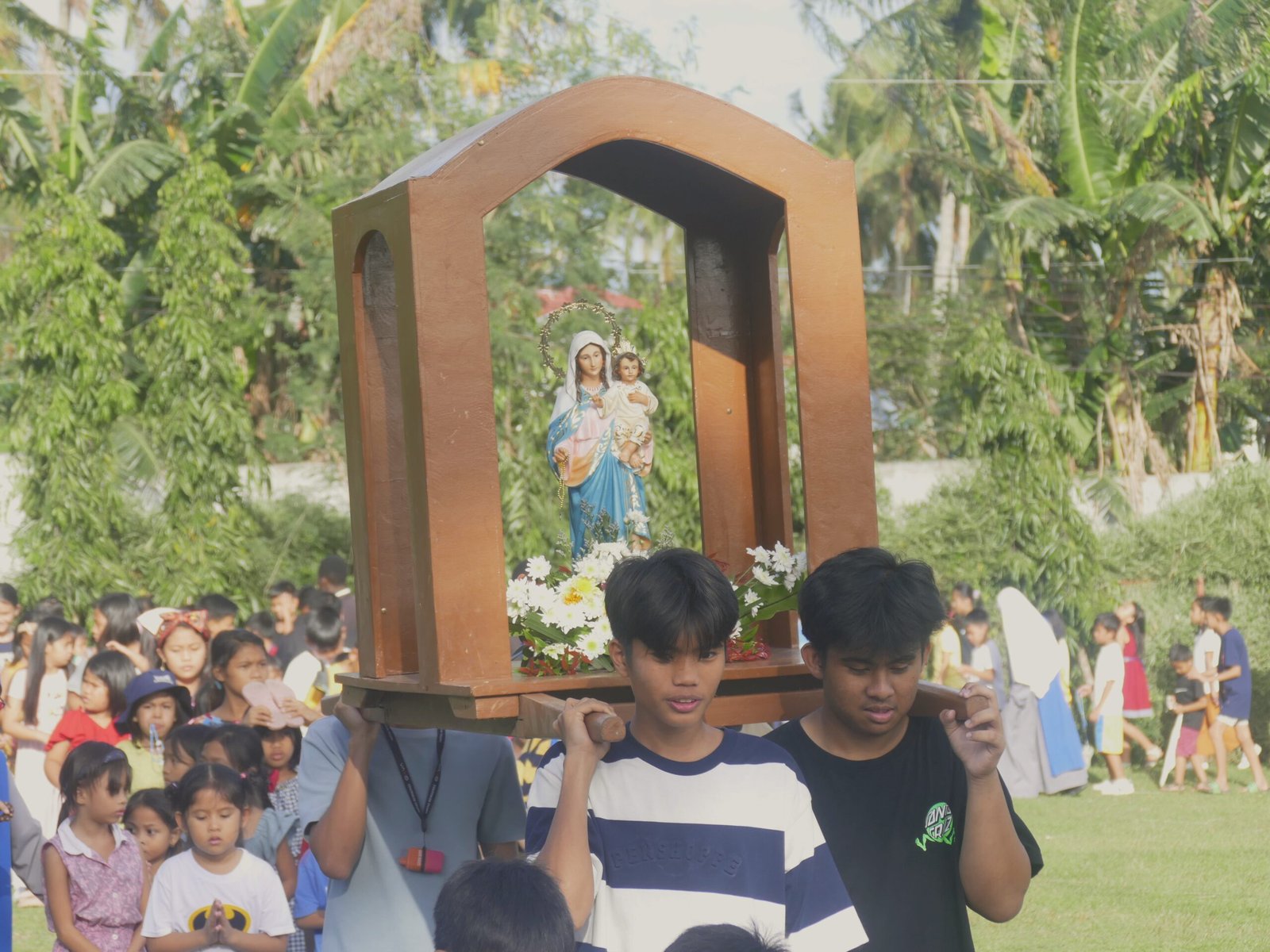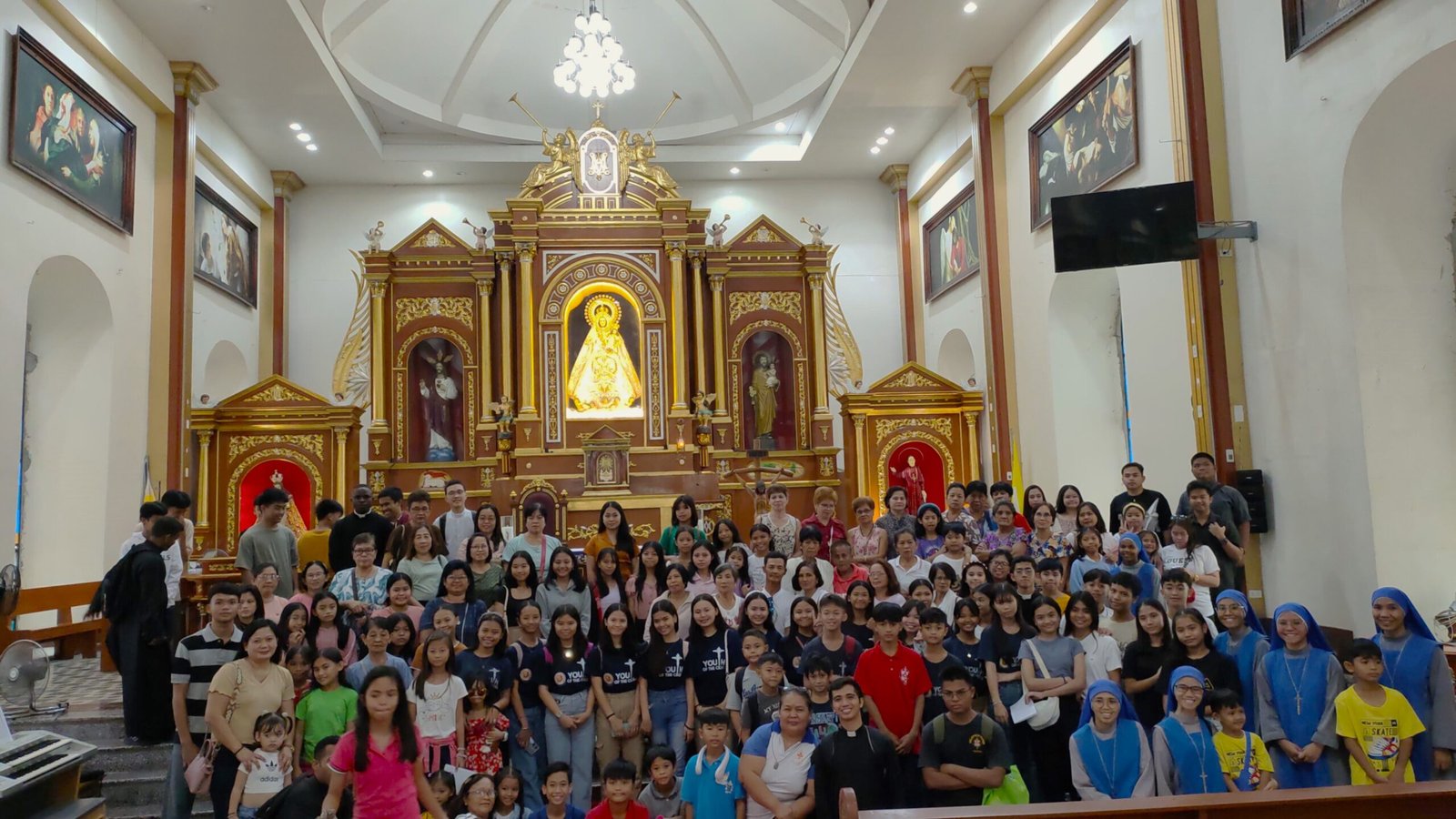Our Constitutions establish that “in a special way, we will be devoted to preaching the Word of God…in all its forms,”[1] and there is a special mention of “the education and Christian formation of children and young people.”[2] Such work is to be carried out with enthusiasm[3] and, “according to the spirit of Saint Philip Neri and Saint John Bosco, [considering that] the “Oratory” is still relevant.”[4]
This is to say, our pastoral work with children and youth–as it could be no other way–forms an essential part of the evangelization of culture. Thus, John Bosco himself understood it for this reason he affirmed: “I have consecrated my entire life to the good of the youth, convinced that the good of the nation depends on their good education.”[5] His motto was well known: “Good Christians and honored citizens.”[6]


Consequently, youth ministry is carried out with “the living flame enkindled by the Holy Spirit in the heart of him who loves the youth”[7] has come to be a distinctive sign of our pastoral work and a precious legacy which we should make grow in extension and solidness[8] for the benefit of the children and youth.
We follow in our Children’s Oratory the system that St. John Bosco implied in his oratory, the “preventive system”. The preventive system defined by Don Bosco “consists of making known the regulations of an institute and then watching over the pupils in such a way that they always have over them the attentive eye of the headmaster and his assistants. They, like loving fathers, talk and guide them through every event, giving advice and lovingly correcting them. This is like saying: put the pupils in the position of being unable to commit errors.”[9]
In a few words, “the preventive system is charity.”[10]
Saint John Bosco explains: “The practice of this system is wholly based on the words of St. Paul who says: Charity is patient, is kind. It beareth all things, hopeth all things, endureth all things.[11]
And if within the preventive system, one wishes to determine which of the three factors should be considered the most important, there is no doubt that primacy is given to love. Love is, in effect, “the inspiring principle” and the soul of the “preventive method,” but as Don Bosco himself points out, “it is not enough. The best thing is missing:”[13] “the youth should not only be loved, but they themselves should know that they are loved.”[14]


Only when the children and youth feel “loved in the things they like, through taking part in their youthful interests,”[15] they will be disposed to see that they are exhorted out of love to do those things which are less pleasing to them.[16]
This preventive system which we are speaking about “consists in creating an environment which is educational, religious, one of love, all in a climate of familiarity.”[17]
We strive for an integral education, that is to say, one which embarks the whole of the human person, and according to the circumstances, one which is correcting, healing, and constructive.[18] Our Directory of Oratories specifies: “This integral Christian education can plant deep roots in the youth only when it places in hearts three great principles: the value of all that is eternal (the capital importance of the salvation of one’s soul), the last things, and a holy fear of God.”[19
Notes:
[1] Constitutions, 16.
[2] Ibidem.
[3] Cf. Constitutions, 181; Directory of Vocations, 85.
[4] Cf. Constitutions, 181.
[5] Letter to Dr. Peverotti de Cassine, Alessandria, September 6, 1876, E III, p. 93. Our Directory of Missions
Ad Gentes also clearly points out in number 73: “we must not forget about the youth who, in numerous
nations, represent more than half of the population.”
[6] SAINT JOHN BOSCO, Rule of the Oratory of Saint Francis de Sales for externs, part II, chpt. II, art. 6.
[7] Directory of Oratories, cap. 5, art. 5.
[8] Cf. Notes from the VII General Chapter, 93-94; 108-109.
[9] SAINT JOHN BOSCO, Obras Fundamentales, Part II, Preventive system for youth education, 1.
[10] Directory of Minor Seminaries, 144; op. cit. GIOVANNI BATTISTA LEMOYNE, Biographical Memoirs, VI,
381.
[11] 1 Cor 13: 4-7.
[12] SAINT JOHN PAUL II, To the Daughters of Mary Help of Christians, December 12, 1982
[13] SAINT JOHN BOSCO, Obras Fundamentales, Part II, Letter about the spirit of family, 614
[14] Directory of Oratories, 39; op. cit. SAINT JOHN BOSCO, Obras Fundamentales, Part II, Letter about the spirit
of family, 614.
[15] SAINT JOHN BOSCO, Letter about the spirit of family.
[16] Cf. Ibidem.
[17] Cf. Directory of Oratories, 14.
[18] FR. CARLOS BUELA, IVE, Mi parroquia, Part III, IX, A, 5.
[19] Directory of Oratories, 23.

